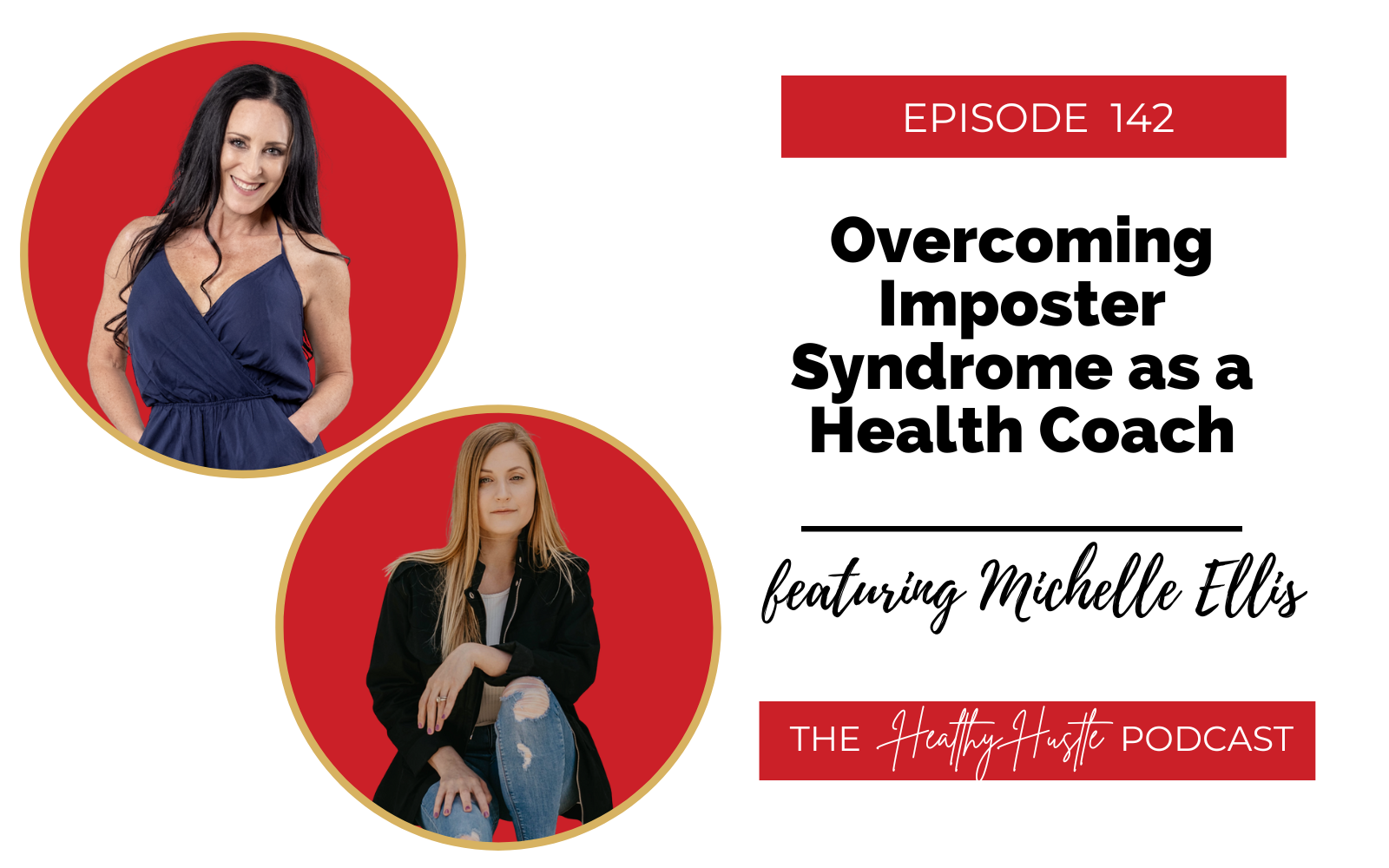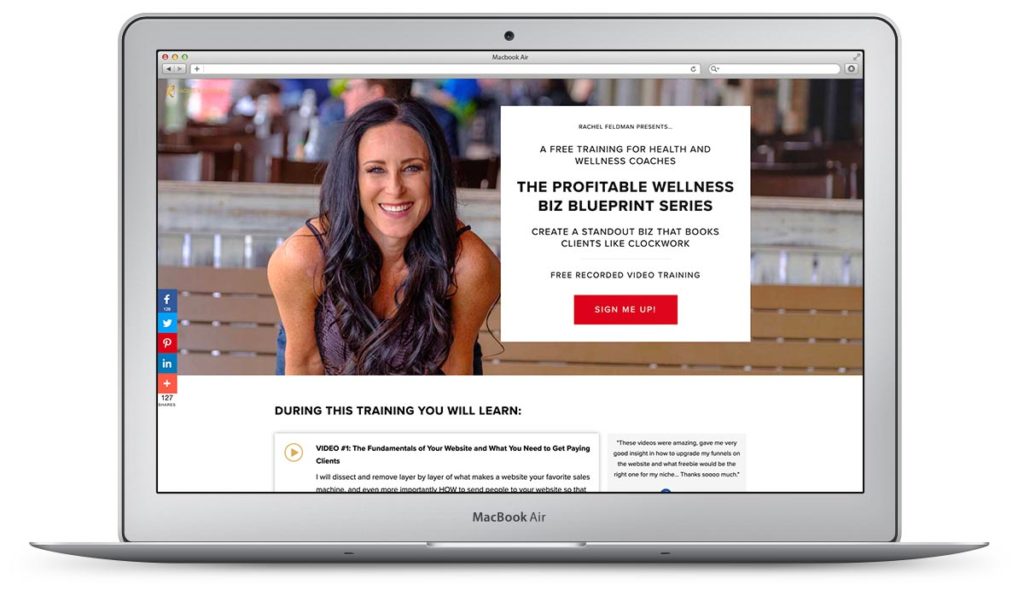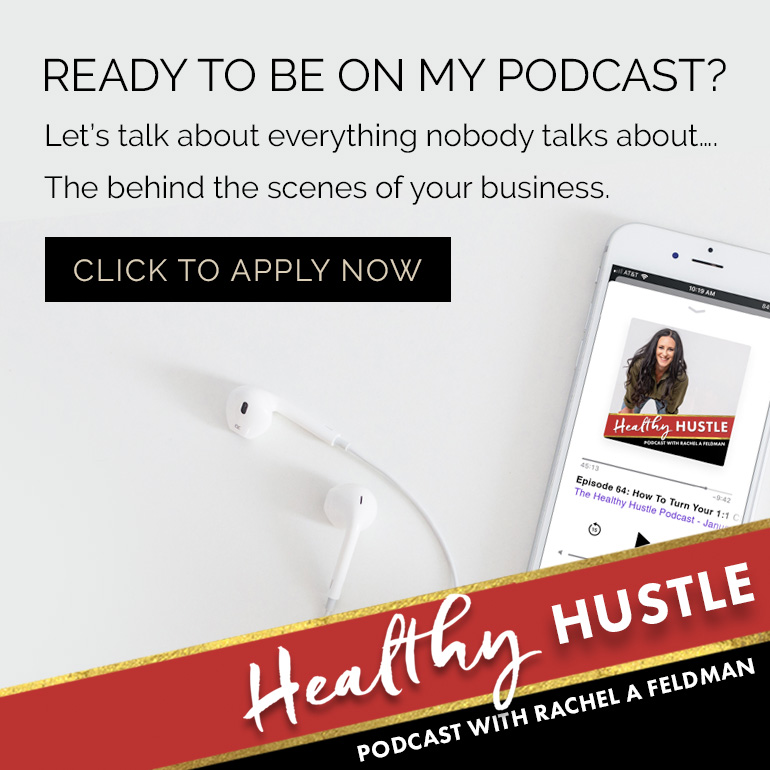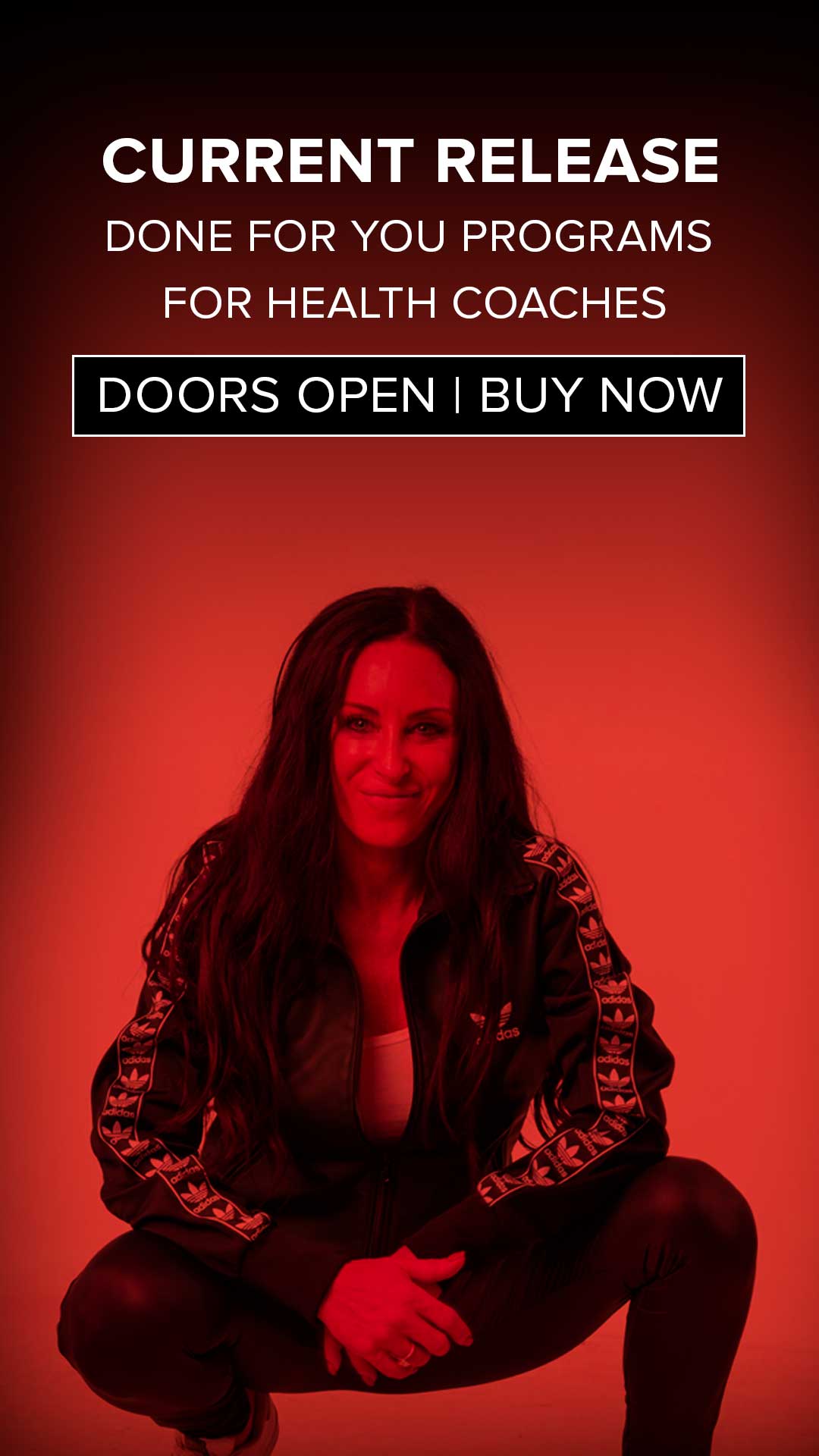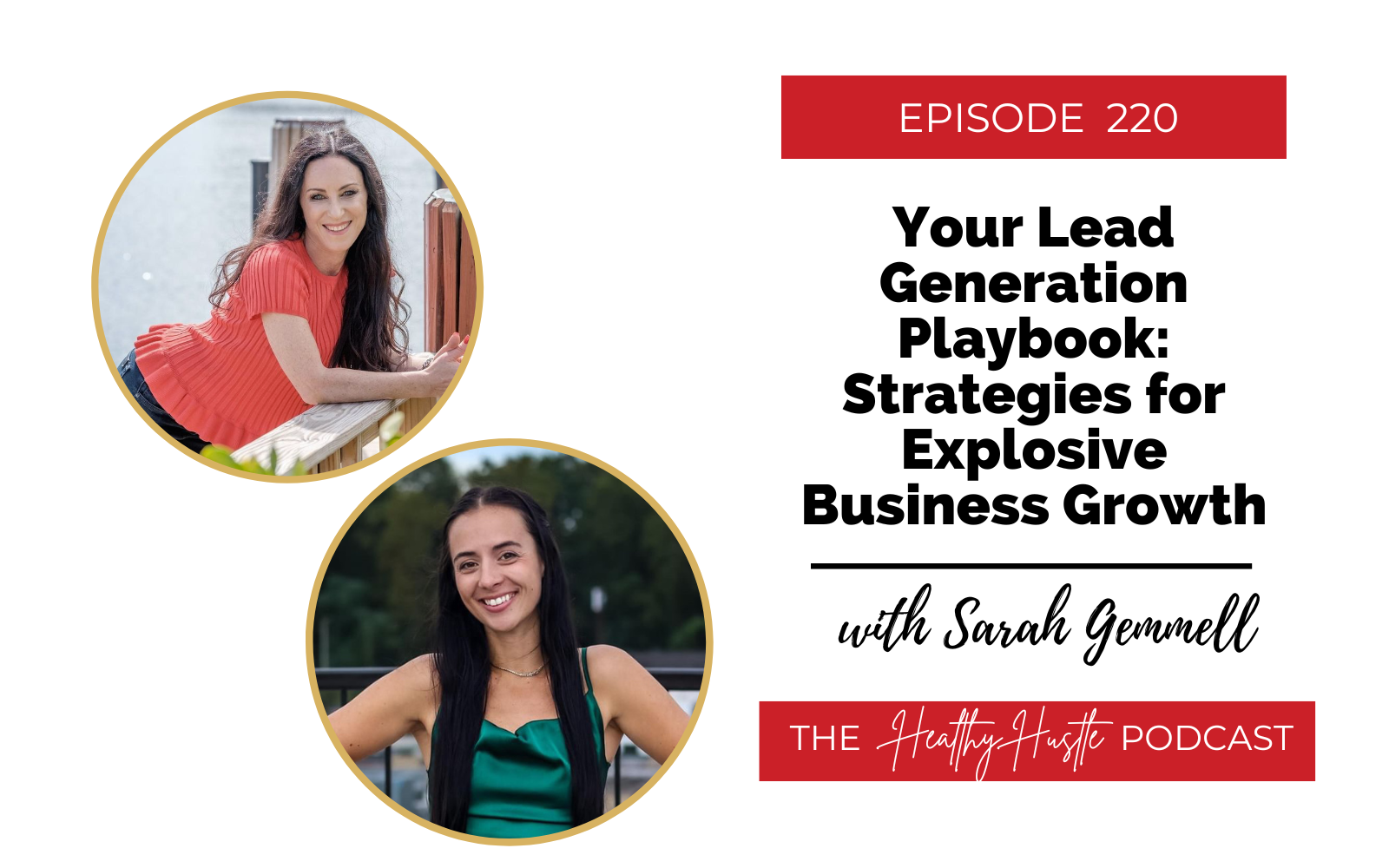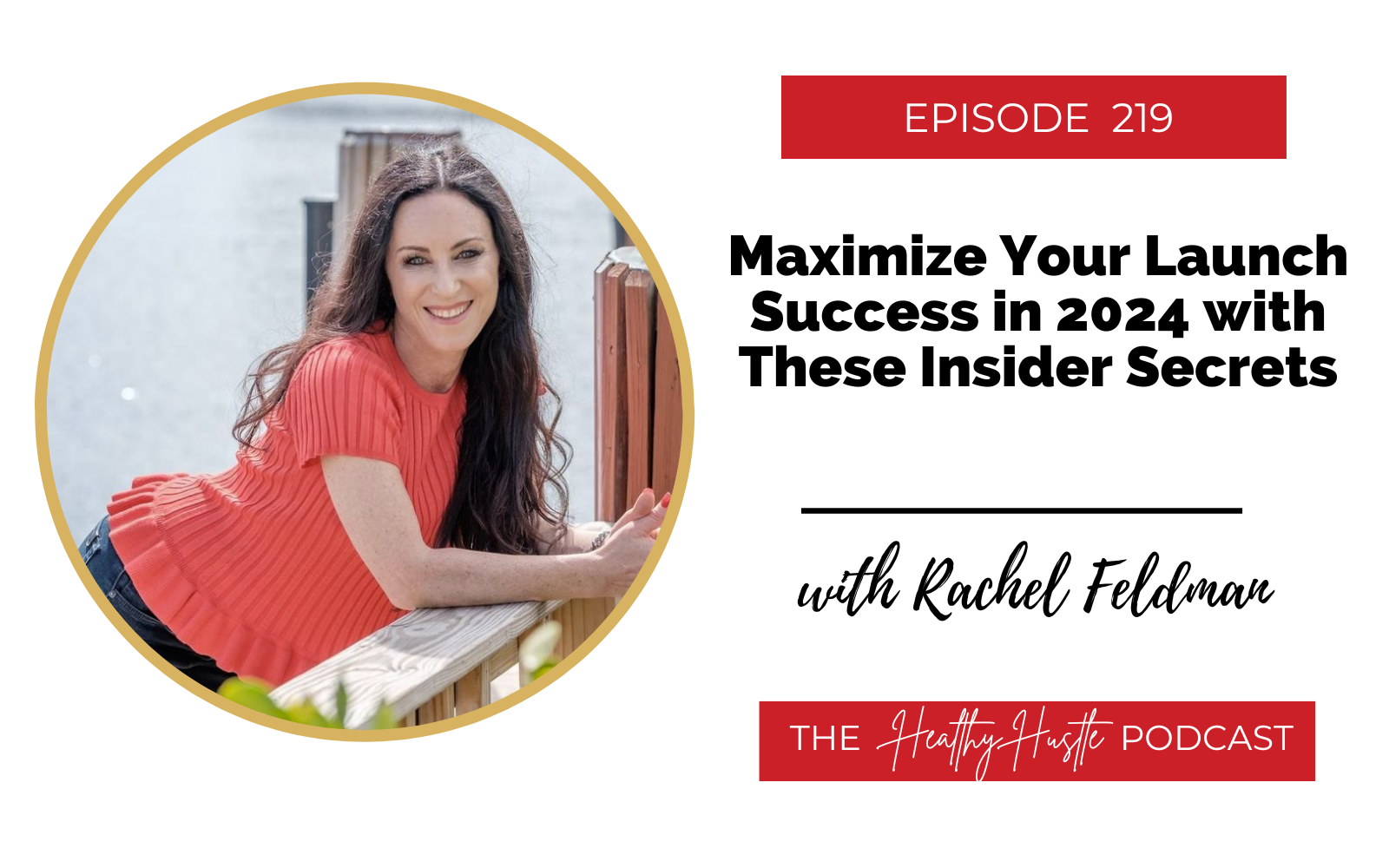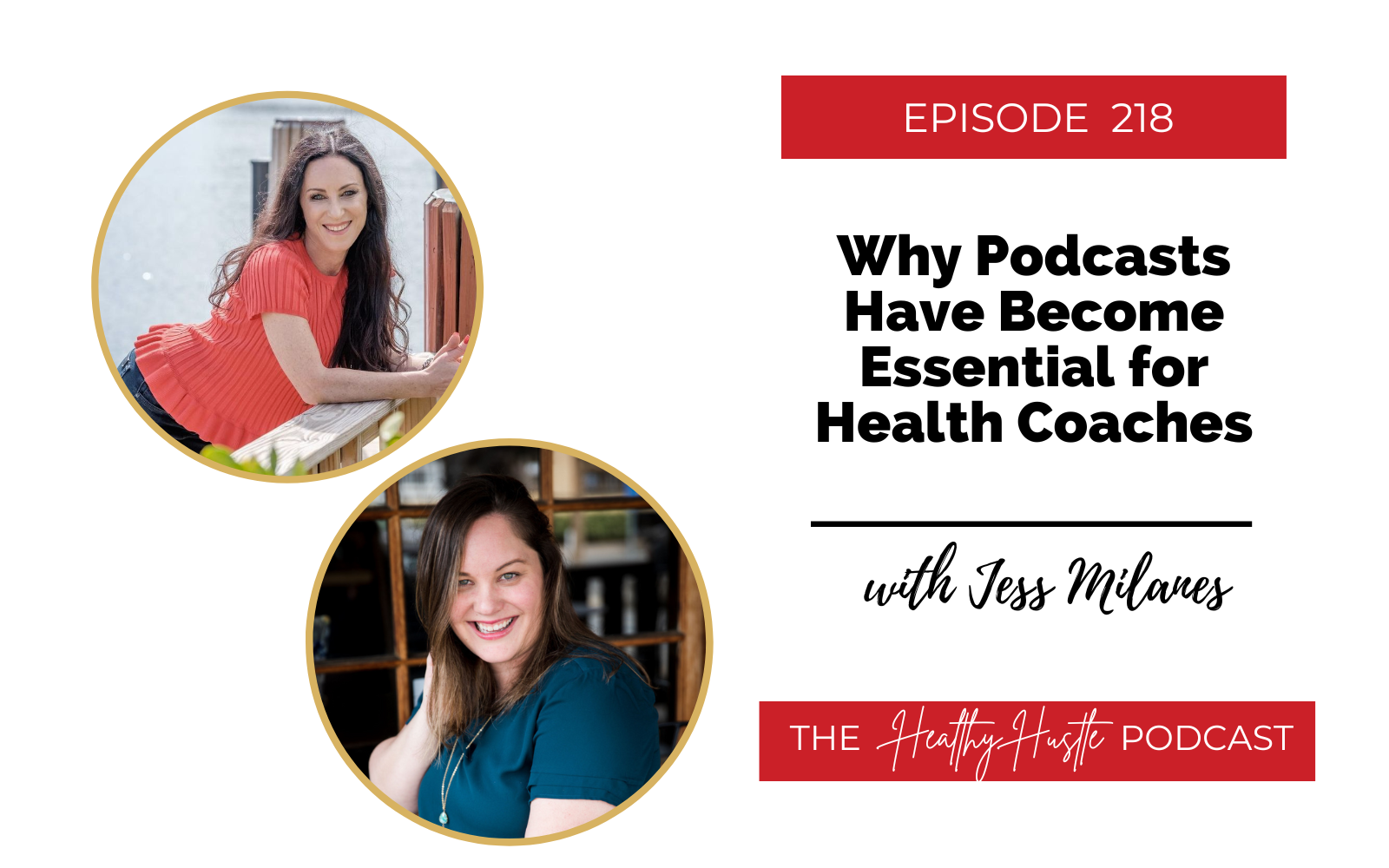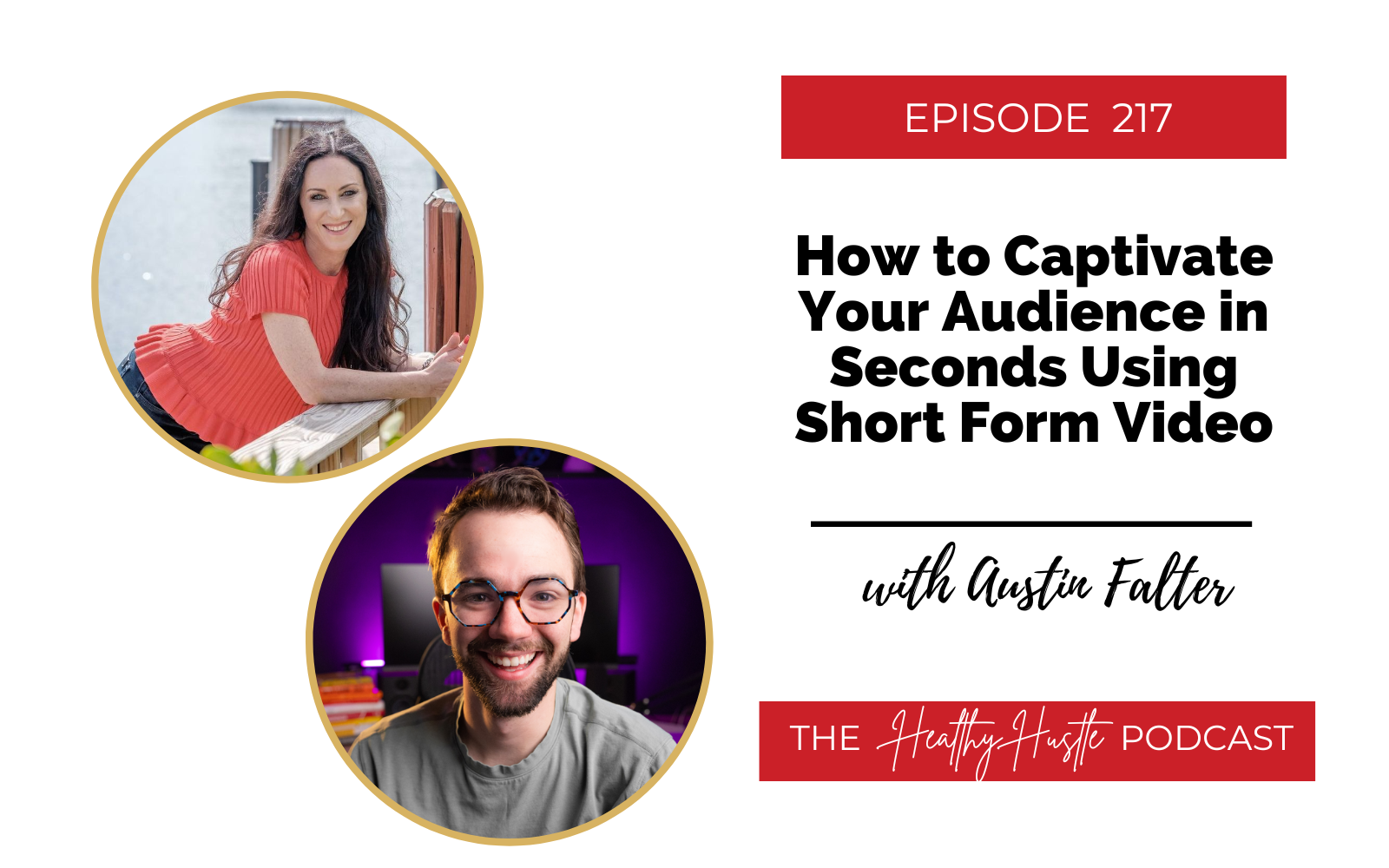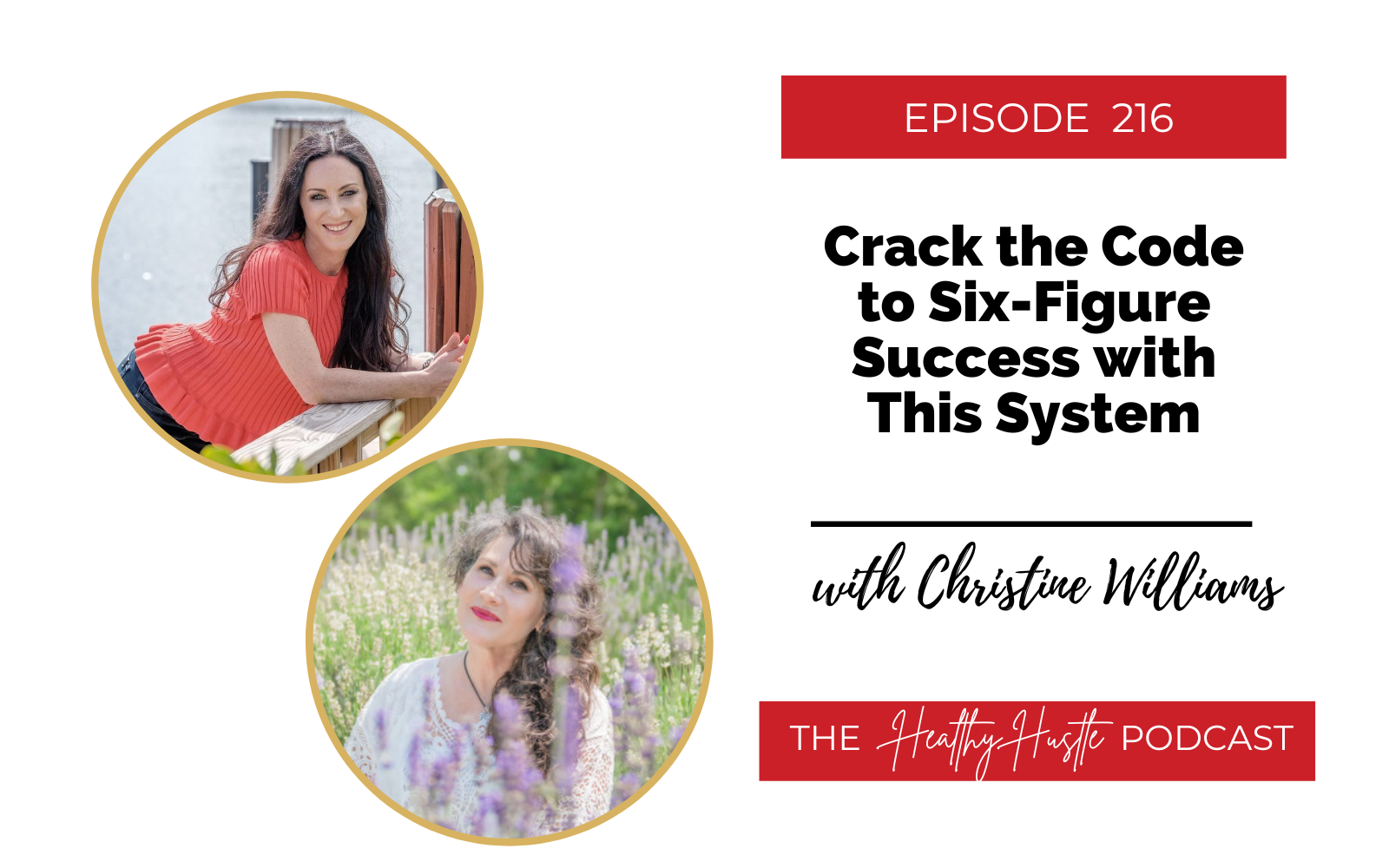A lot of extremely knowledgeable, smart, and certified coaches have been telling me that they STILL deal with Imposter Syndrome. If you’re dealing with Imposter Syndrome, I can tell you right now, that we are all in this together (yes, even me!). Because we all start our health coaching business at Chapter 1. But the most important part is that we just start.
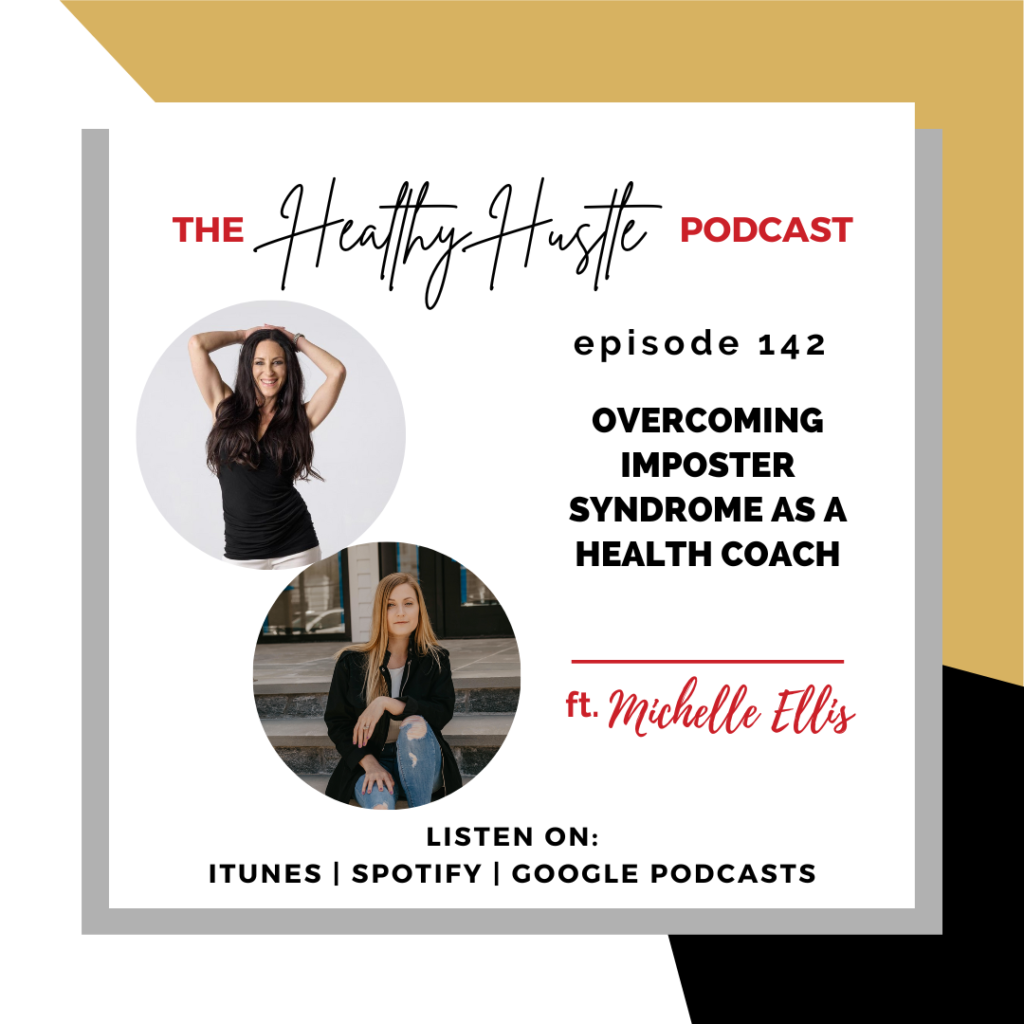
In this episode, Michelle Ellis and I are deep diving into how imposter syndrome affects your coaching, how to reframe your mindset so you can gain more confidence in your skillset and abilities, and why perfectionism and Imposter Syndrome go hand in hand. Plus we’re sharing a few exercises that you can use to get out of this Imposter Syndrome spiral.
Connect with Michelle:
Michelle’s website: https://michelleellisco.showit.site/#/
Michelle’s Instagram: https://www.instagram.com/theorganiccopywriter/
Rachel: Hey there, guys. It’s Rachel and Michelle. This week we are talking about impostor syndrome. It’s something that I’ve been talking about with coaches left and right. Coaches who are extremely knowledgeable, they’re smart, they have certifications left and right and yet they’re still this imposter syndrome.
So we wanted to deep dive into some behind the scenes and talk on how impostor syndrome affects your coaching, how your mindset affects your ability not to procrastinate, and a few exercises that you can think of that you can use to get out of this imposter syndrome and say, Bye bye, baby. You ain’t messin with me today.
So, Michelle, talk to me about when you first started coaching, was there this imposter syndrome? And how did you handle it?
How To Handle Imposter Syndrome
Michelle: I definitely had impostor syndrome. I really felt like I got all of this education in such a short amount of time. And then no one really saw that whole process. They knew I was in school, I was sharing my new lifestyle and stuff. But I just personally felt like –which I don’t even believe was true, that other people didn’t realize how much education I had or what I really knew or how I could help them even though they were coming to me and asking me questions, and knew I was living a holistic lifestyle. I felt like I couldn’t charge for it or I just felt shell-shocked.
Rachel: I actually executed this plan that I had in my mind for you, or for me, even and I would love to hear from you because the coaching part didn’t scare me. Actually, when they were saying in school, do groups, I had a major heart attack. I was like groups, I am not doing groups, I have a fear of public speaking but coaching one on one didn’t scare me.
What made me feel like an imposter is that I was still going through a lot of my health issues. So I felt like I was not healed. And I hear a lot of coaches who say either I don’t know enough, or I’m not through my health issues, or I’m still struggling in the health zone. So that’s what led me to feel this imposter.
What Makes You Different Than The Competition
And the truth is also, I’m somebody that would look at other people and be like, they have it all figured out. They have it all figured out. They’re so good at social media. They’re so good at talking. They’re so good at public speaking. I would down and dog myself and have that negative thinking and then it would feed into this vicious hamster wheel circle.
Michelle: Yeah. I always used to get wowed. I would see successful health coaches, because I’d follow them. There’s always that question of like, well, what makes me different? Why wouldn’t someone just go to the coach who already looks like she has it all together? I’m just starting. She already has the beautiful website, the professional photo, the programs on the website, the whole nine.
I really just had to find my own little nerve to just say, I’m just gonna try it anyway and see how it goes. I had to get over a lot of fears, though, because I was always the kid who didn’t want to read my paper in front of the class. I would get out of it in any different way. Even in my adulthood. I would be like, Oh, no why don’t you just read it?
I used to get, I don’t want to say picked on but in my school, they would always make sure everyone did go up. And that was it. There really wasn’t a way out of it. So I had to fight through it as a kid. But it was super duper uncomfortable. So when I became an adult, I was like, well, I’ll never do that again. Because now I can make the choice not to.
Then I found myself like, okay, but you do need to show up. So I do have to speak, Then when social media became very advanced very quickly, and then it was Facebook Lives and all these other things popping up and all these other platforms, it became something I had to do. So it was a lot of getting over anxiety and fears and worrying if I was going to be good enough or stumble and being okay with those mistakes. That was the biggest thing.
Why Imposter Syndrome Goes Hand In Hand With Perfectionism
Rachel: I love that you brought up that because I think impostor syndrome goes hand in hand with perfectionism and all the other syndromes. The inner critic that keeps talking and I think getting over that fear that you’re gonna mess up and know that there’s going to be mess up and know that you’re going to get better over time has to be the only way that you can get out of actually staying in this negative mindset. My, I’m never gonna be enough and my, I don’t know what I’m talking about – we all have the fears, but we just can’t listen to them.
Michelle: Yeah, exactly. Even the other day, even years later I had a creative video and I was kind of nervous and I tongue tied, I got tongue twisted. I was like I should probably turn this into a blooper reel. That would be really funny, but people don’t get to see how many times it takes to do something. And that’s the thing. So I think it’s a matter of being comfortable in your imperfection. No one’s perfect. There are some coaches out there who put out the top quality videos, and they have the camera crew, and all that kind of stuff. But that doesn’t mean that you can’t be successful without any of that at all.
Rachel: Well, I think about these lines that we always hear, you only are the one that does what you do. I was listening to I think it was Eric Thomas, who has screaming motivational videos, but I do love him, because he just has these great one liners similar to Les Brown. He was like, you have to understand that somebody out there is only needing to hear your voice.
How To Reframe Your Mindset Around Imposter Syndrome
So getting over that impostor syndrome, that fear of I’m not going to be the best speaker, the best coach. You have to start flipping it around and actually reframing it and saying, No, I am the best coach out there and there’s somebody who needs to hear my story. Here’s my solution. I need to get the heck out of this stinking thinking, to just start and just know you’re never going to be fully ready. You just start doing. Would you agree?
Michelle: Yeah, I think doing is the key to moving forward. I used to watch, I still do, Gary Vee. I never say his last name. And he would always have these videos up where he was so candid, and so just conversational and raw. And I love that. I just took that in and it gave me a comfort of how we really are just real people having conversations, and this is just a new way to do it. So that was really helpful because I wasn’t scared to coach and I wasn’t scared to even do Discovery sessions. I felt very comfortable with that. But it was just the all the other stuff?
Rachel: Can you agree –and you were saying this just a little earlier– that if the imposter syndrome stuff is coming up, then charging your worth also gets affected?
Michell: Yeah.
Rachel: I was talking to a coach the other day, who was saying, I just felt like an impostor, because I felt a lack of confidence, because I was trying to get somebody to a three month program and I didn’t have any structure. I didn’t have any program to give. I was like, Well, that’s one of the things that our programs do. Our done-for-you workshops gives you content so you can lessen that inner critic and know that at least you’re showing up with solid, beautiful value content.
Why You Might Be Exactly What Your Clients Are Looking For
Michelle: Yeah, that was a big thing for me too. Early on, because one of my first impostor thoughts was, why would someone not just go to a doctor to fix their gut issue? Or why wouldn’t they go to a holistic doctor? Maybe their insurance covers it. All of these things would pop up in my head.
But then I really had to sit back and think when I got clear on what I was offering, and who I was serving, and what niches I was in and looking at detox, and adrenal fatigue and gut issues and things like that, and trying to figure out what makes me really different and what makes me different from the other people?
I’m comparing in my own brain that nobody else probably is the biggest thing. That always came up for me and it was the rebuttal in my brain that helped me a lot – was that with a coach, you’re getting that personal attention. You’re not waiting in a waiting room. There’s no little chart that comes rolling out and then that’s it until the next follow up visit.
It’s a lot of hands on communication. Now we have a lot of channels, right? You can message, you can audio, you could do all these things in between, not just email. So there’s a lot of hand holding in the program and I think that’s really really important because people want that. They need that support and that’s what coaching always does. Even Oprah has a coach. At every level people need that level of support. So really, that’s what it’s all about.
How Shifting Your Mindset Can Help You Overcome Imposter Syndrome
Rachel: For people who have impostor syndrome, there can be some self worth issues. I know that was for me, when I started this business, I really got challenged with a lot of old trauma, old stories about myself. Self worth issues, self love issues.
I always say, if you want to go to therapy, just start a business. Or be challenged with everything that comes up and all those feelings like I’m not good enough, or I can’t do this. I know that one of the exercises that was told to me when I was really on that struggle bus of feeling like I wasn’t good enough, and everyone else had it figured out, was to actually ask people, friends and family to write down on just a piece of paper what they saw in me. What they saw me as a coach, as a person, the quality of value that I give. I put those in a bowl so that each day I could read those pieces of paper. One thing I realized is that impostor syndrome to eliminate it is really all about a shift in mindset. Being willing to shift in mindset 25,000 times a day before you go into the rabbit hole.
Michelle: Yeah, I think a lot of that has to do with what we’re feeding ourselves. So, I would read a lot of books, once I knew Okay, I have an issue with this. I’m going to read some books. I’ll read some books on leadership, or even blogs, podcasts, and YouTube videos that are short and sweet, but motivational. Just trying to feed my brain with that helped me realize that the rest of the world is going through this too.
Rachel: No matter what type of job or business or situation they’re in everyone goes through this. So it was common, and there’s a lot of solutions out there for it to really help. But I think practice is definitely the one that really is almost like a muscle, constantly have to work just have to start doing. For me, having problems with reading and writing and stuff that was like dyslexia, I had to get over only by practicing. Do a blog a week, do this letter. I had to get over these old stories that were surrounding like, I’m not smart enough. I’m not good enough. All of those delays that I had, and the things that affected my testing.
I always say I bombed the SATs, because my test taking abilities. And it wasn’t actually until I was going off to college did they realize that I had like, some of these kinds of issues that they needed to give me extra time for and a stain. But before that, for all of my schooling career, I just thought that I was stupid. Because that was all the tests that define your grade. I had to get over that and that impostor syndrome, that fear, just by practicing and doing and being okay with making mistakes.
When I look back to my beginning stages, there was such a high amount of imposter syndrome, such a lack of confidence, but I started. Yeah, and that’s the difference. I see so many people in procrastination, in imposter syndrome, that then will go in over-course, over-certify, jump around platform to platform thinking that’s going to be the magic bullet for their business. Jump around niche to niche, not be clear, and instead, you’ve got to drill down. Gotta get super clear on who you serve.
How Practice Gives You Confidence
You got to start practicing showing up and doing lives, showing up and doing videos. If you’re not ready to publish them live, whether that be on Instagram, or Facebook Live, then you’ve just got to start practicing and doing them. Practice screen sharing, practice talking to the phone. When I think about doing this podcast, as much as I’m a talker, clearly, I was worried about doing a podcast, I was like, What am I going to talk about? I had to practice that. I had to get used to having an ongoing conversation. I still sometimes get a little fear. What am I talk about? Is anyone gonna resonate with us? But then it’s just putting that fear to bed and doing it.
Michell: Yeah, I think that’s super important. Also leaning on your strengths a bit. Everyone has strengths. So maybe a coach is a strong blogger, you can do that and dabble in what else you need to do, but focus on your strengths, on how to get out, because that’ll help you get over the imposter syndrome when you’re having success with something that you’re really good at.
I see a lot of health coaches, sometimes laser focusing on the aspects that are not as strong that still need to be developed. So they just focus, focus, focus, and they don’t do what they’re good at. But it’s like, if you do a lot of what you’re good at, and then slowly practice on the things that need to be developed, then you’re gonna have faster success, too.
Rachel: Well, it reminds me of a conversation. I’ve had so many conversations lately on Discovery calls with coaches, and it’s so helpful to me because it ends up allowing me to bring such value here on what we’re struggling with. She was so super excited when we were talking about building out just a very simple funnel for her business. She’s brand new. She said I’m not great at Social Media, I’m gonna go and take a class and learn about this. And she said, But I’m really good at doing presentations live, face to face. I said, well, great, when you buy these programs, you’re gonna get four different PowerPoints, you can go with them live, she was so super excited. She’s like, I’m gonna go and partner with gyms and spas and chiropractors offices, really got excited about her strengths. Like you said, focus down on just this area of social media that made her feel uncomfortable.
Michelle: Yeah, that reminds me when I first started health coaching, one of the first things I did was try to just go into the local community because I just felt really comfortable doing that. I was already shopping in the stores, I was already having conversations with people in person. So I just felt really good about that. That’s where I started and I still built up online and did things, but I focused a lot on in-person too. Having done-for-you content at the time was great for me, because I could just add some flavor or have little personality things.
Rachel: And let’s be honest, you’re also one of those people that are really good at making your content.
Michelle: But yeah, they’re not recipes.
Rachel: You’re one of those people that could write a program. I feel like some people are really good at that.
Michelle: I know for me, clearly I wrote a lot of the programs, but sitting down and doing PowerPoints. That just killed me. It took me like three hours.
Rachel: Yeah, that’s how I felt I couldn’t do recipes. I needed the done-for-you approach. Honestly, even just trying to pull things online that I felt good with. I could tell them what to eat, what not to eat but then at the same time, you’re like, “Well, what am I supposed to eat salad? I’ll just make a smoothie.” But when I remember having one of the spring detoxes and having the exact meal plan, it was just a sigh of relief. It was like, okay, cool.
I think that’s the thing about our business, if we can wrap this up and just give a great takeaway, which is that our businesses have so many moving parts. We have to blog. We don’t have to blog, you can do video blogs. But if you want to have a presence you could do a recipe blog. There are so many different things that you can do. It doesn’t have to be a standard blog.
But we need our newsletters to nurture our community that we’ve built, we need our list building strategy, we need our programs that we offer. A lot of that impostor syndrome can come in when we don’t have a plan. I think that’s the biggest thing that I hear.
For coaches, you have to have a plan. You have to know how to list build and where your ideal clients are hanging out. I think that we spend a lot of time trying to switch platforms, switch email marketing lists, do all these busy work instead of doing a lot of that hard work that’s going to bring us information and research so we can put that plan together.
Michelle: Yeah, exactly. I also think having a community of support. You have your groups to help coaches and I think that’s really important because a lot of times, coaches voice that and then other coaches jump in and provide support.
Rachel: A lot of us are scared to voice. We feel a lack of Confidence. But when I see every successful entrepreneur online, they talk about impostor syndrome or credit perfectionism. They talk about all the same things. It’s just they don’t stay there. They just say, if I’m feeling uncomfortable, it’s only going to be temporary. But if you don’t do anything at all, that’s going to last forever. Just not starting your business. So Michelle, what would you say is the biggest takeaway that you want coaches to hear from this episode?
Michelle: To really persevere through the imposter syndrome because you’re not alone with it. So just keep going. The more that you push through, it just breaks apart from you and then you stand out on your own. I can do this but it does take that perpetual telling yourself that you can do this as many times a day as you need. It doesn’t really stop because every time you advance in your business, then a new level might come along, a comfortable feeling comes up.
Rachel: Yeah. We’re not good at that so we go and practice it.
Michelle: Yeah, especially technology changes, all things are going to be ever evolving. So we always have to be evolving as human beings. So I think we always just have to tell ourselves, you can do this even when we think we can’t.
Rachel: I love that. So guys, if you’re dealing with any impostor syndrome, you’re not alone. Just remember, there are coaches just like you. We all started at chapter one. We didn’t just go to chapter 12 right away. If there’s somebody else that has prettier videos and prettier graphics or anything, that’s not what our ideal clients are looking for. They are looking for us to be professional, but they want you to be real. So don’t forget that. Put the impostor syndrome to the side. Just start even if you’re not ready, do it scared. So we’ll see you for the next episode. And guys, have a great week. Talk to you soon.

